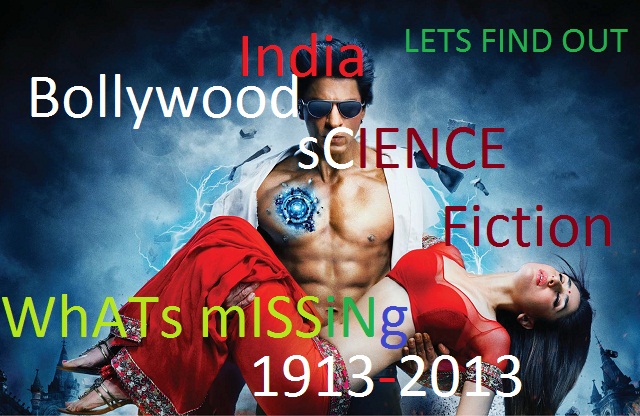 Given the immense popularity and box office success of science fiction and fantasy films in the West it might be natural to assume that these genres are also very popular in non-Western cultures. But that is not the case. A recent essay by Christine Folch in The Atlantic titled “Why the West Loves Sci-Fi and Fantasy: A Cultural Explanation,” explored this interesting question of science fiction and culture, looking at how American science fiction films fare far less well in India.
Given the immense popularity and box office success of science fiction and fantasy films in the West it might be natural to assume that these genres are also very popular in non-Western cultures. But that is not the case. A recent essay by Christine Folch in The Atlantic titled “Why the West Loves Sci-Fi and Fantasy: A Cultural Explanation,” explored this interesting question of science fiction and culture, looking at how American science fiction films fare far less well in India.
This isn’t to say that there aren’t folk tales with magic and mythology in India. There are. That makes their absence in Bollywood and their overabundance in Hollywood all the more remarkable. Whereas Bollywood takes quotidian family dramas and imbues them with spectacular tales of love and wealth found-lost-regained amidst the pageantry of choreographed dance pieces, Hollywood goes to the supernatural and futurism. It’s a sign that longing for mystery is universal, but the taste for science fiction and fantasy is cultural.
One significant aspect of this subject is the disenchantment of the West, and how science fiction and fantasy helps re-enchant our arid secularism by providing a sense of wonder. Folch’s essay closes on this note:
Hollywood continues to make science fiction and fantasy movies because disenchantment creates a demand for these stories, but disenchantment predates Hollywood. We were journeying ten thousand leagues under the sea or scarcely surviving a war of the worlds before the film industry began. If the uptick of Hunger Games-inspired archery lessons and the CDC’s humorous-but-practical Zombie Preparedness Guide are any indication, this is not going away any time soon. Re-enchantment delivers something more important than escapism or entertainment. Through its promise of a world of mystery and wonder, it offers the hope that we haven’t seen all that there is.





There are no responses yet